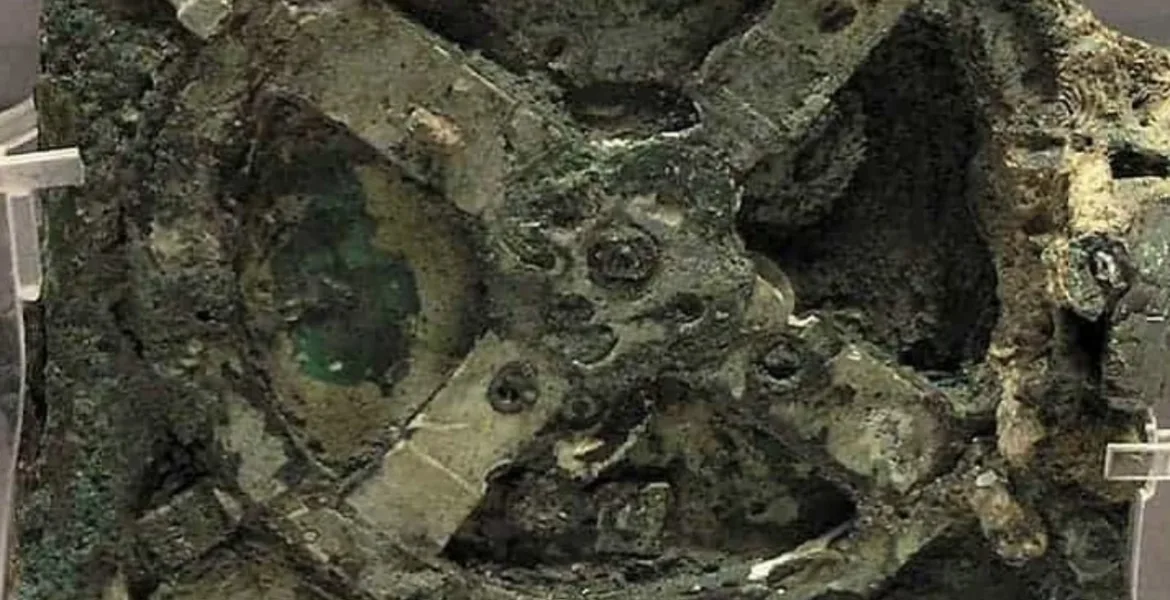At the center of Indiana Jones and the Dial of Destiny is a device quite like the real ancient Greek artifact known as the Antikythera mechanism, which has been called the world’s oldest computer. “Every Indiana Jones adventure needs an exotic MacGuffin,” writes Smithsonian.com’s Meilan Solly, and in this latest and presumably last installment in its series, “the hero chases after the Archimedes Dial, a fictionalized version of the Antikythera mechanism that predicts the location of naturally occurring fissures in time.” After undergoing Indiana Jonesification, in other words, the Antikythera mechanism becomes a time machine, a function presumably not included in even the least responsible archaeological speculations about its still-unclear set of functions.
But according to Jo Marchant, author of Decoding the Heavens: Solving the Mystery of the World’s First Computer, the Antikythera mechanism really is “a time machine in a sense. When you turn the handle on the side, you are moving backward in time, you’re controlling time. You’re seeing the universe either being fast-forwarded or reversed, and you’re choosing the speed and can set it to any moment in history that you want.”
She refers to the fact that a handle on the side of the mechanism controls gears within it, which engage to compute and display “the positions of celestial bodies, the date, the timing of athletic games. There’s a calendar, there’s an eclipse prediction dial, and there are inscriptions giving you information about what the stars are doing.”
It seems that the Antikythera mechanism could tell you “everything you need to know about the state and workings of the cosmos,” at least if you’re an ancient Greek. But it also tells us something important about the ancient Greeks themselves: specifically, that they’d developed much more sophisticated mechanical engineering than we’d known before the early twentieth century, when the device was discovered in a shipwreck. According to the BBC video above on the details of the Antikythera mechanism’s known capabilities, Arthur C. Clarke thought that “if the ancient Greeks had understood the capabilities of the technology, then they would have reached the moon within 300 years.” A grand old civilization that turns out to have been on a course for outer space: now there’s a viable premise for the next big architectural adventure film franchise.


I find it hard to get my head around this, simply because as an engineer a few things puzzle me, Where did the metal come from it had to be processed, at a time when it was virtually unknown to process most metals apart from gold and that was an amateur job if you look at the supposed time, then what really can’t understand is where the machines come from to make this gadget lathes metal rollers gear cutting screws and parts.
By hand had to be the only way possible as there were no machines in those supposed times.